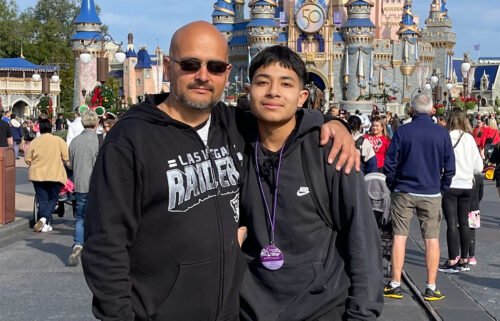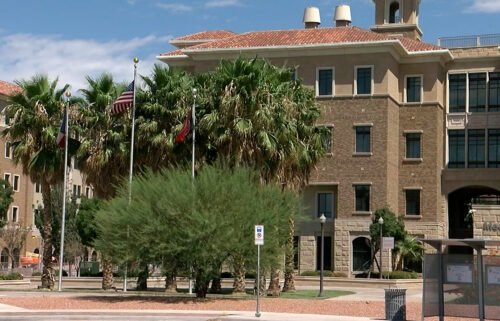After arrests of protesting doctors, border agency digs in on refusal to vaccinate migrants

Dr. Paul Spiegel looks back at the years he worked for the United Nations helping to coordinate vaccination campaigns for refugees in war-torn sub-Saharan Africa.
There weren’t nearly enough doctors. There often wasn’t any power. Sometimes medical staffers had to flee from armed militias.
So, he wonders: Why does the US government say it’s too difficult to vaccinate migrants as soon as they cross over the border from Mexico?
“If we can do it in places like Darfur and South Sudan, I imagine the US government can do it,” he said. “Frankly, it’s not so hard and it’s not so complicated.”
Spiegel isn’t the only one who is doesn’t understand why US Customs and Border Protection has steadfastly refused to vaccinate migrants against the flu even in the face of recommendations to do so by the US Centers for Disease Control and Prevention and the American Academy of Pediatrics.
The issue came to a head this week when the Department of Homeland Security arrested six members of a group called Doctors for Camp Closure who were protesting outside a CBP office in California.
The doctors had volunteered to vaccinate migrants for free, but CBP refuses to have anyone — its own doctors or others — vaccinate migrants against the flu.
“We’re disappointed and frustrated,” said Dr. Luz Arroyo, a member of Doctors for Camp Closure and a psychiatrist and family medicine physician in Sacramento.
A CBP official said comparisons to the CBP and the United Nations, or any group that does international vaccination efforts, is “apples and oranges.”
“CBP is a law enforcement agency, not a public health agency,” said the official, who has knowledge of his agency’s medical infrastructure.
“To try and layer a comprehensive vaccinations system” onto the responsibilities CBP already shoulders “would be logistically very challenging for a number of reasons,” according to a CBP statement.
The CBP official said the vaccine would likely not help migrants while they are in the agency’s custody, since it takes about two weeks for the vaccine to take effect, and migrants typically are only with CBP for three days at most.
“In the vast majority of cases, it will not have an impact while in CBP custody,” the official said.
He said CBP can keep migrants in their custody safe from flu through early detection and treatment, and his agency has stepped up those efforts.
“We identify early, we treat, we [do prophylaxis], we refer, we follow up, we do all of those things,” he said.
But Spiegel, the former UN doctor who is now the director of the Center for Humanitarian Health at Johns Hopkins University, said that’s a shortsighted view.
He said just because a vaccination might not help a migrant while in CBP custody, it might save their life later, and delaying the vaccine even by a few days is a bad idea.
“Early makes a big difference,” Spiegel said.
In addition, when migrants leave CBP custody, they often go to detention centers run by other federal agencies, where they’re surrounded by other migrants and by the US staffers who work there.
Entering those facilities already immunized would help stop the spread of the virus, Spiegel said.
“Every day matters,” he said.




